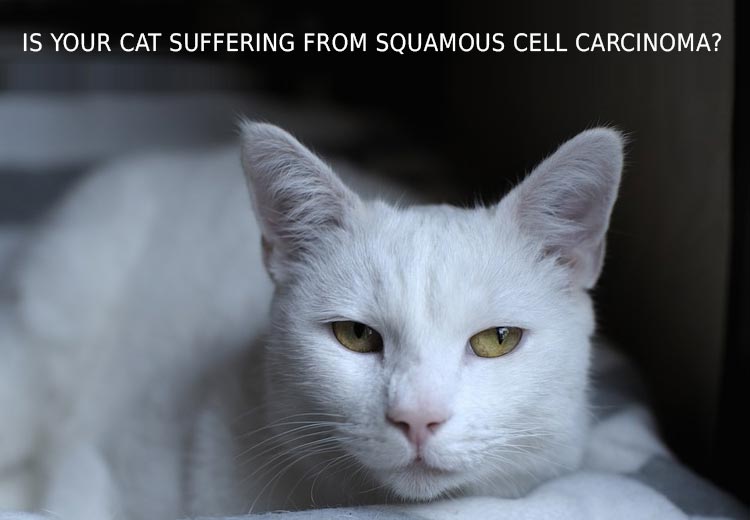 Nov 30, 2018
Nov 30, 2018

Squamous Cell Carcinoma (SCC) is the third most common form of skin cancer in cats. It mostly affects white and thin-haired cats and also those cats who love basking in the sun. The two most common areas where these tumors emerge are in the nose and ears. The skin, as we know, is made up of several layers. The outermost layer is made up of cells called squamous epithelium and here’s where the squamous cell carcinoma (skin cancer) originated.
Before we jump into the symptoms, let us take a look at the types of squamous cell carcinoma which can affect your feline.
Symptoms
There are numerous symptoms that can help you detect whether your cat is suffering from squamous cell carcinoma.
Treatments
-Early diagnosis can help you get a positive outcome as well as make the treatment procedures much easier.
-Surgery can take place to get rid of the tumor only if cancer has not spread to the lymph nodes or lungs.
-Ensure you provide a thorough background of your cat’s health to your vet so that he can have a clear idea of what needs to be done.
We all know how life-threatening cancer can be and despite our best efforts of using good and healthy prevention methods, our cats fall prey to these deadly cells. Thus, we must not get bogged down by this, but instead continue our quest of keeping our beloved cats disease-free because the famous Charles Dickens once said, “ What greater gift than the love of a cat?”